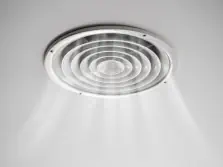Ducted Heating vs. Other Home Heating Methods
Introduction
When it comes to heating your home, there are several options to consider. We will compare ducted heating with alternative methods such as split-system air conditioners, radiant heating, and hydronic heating. Understanding the pros and cons of each option can help you make an informed decision for your home.
Gas Ducted Heating
Ducted heating systems distribute warm air throughout your home via a network of ducts which can either be in your roof or floor. Here are the key advantages and disadvantages of ducted heating:
- Pros:
- Provides consistent heating throughout the entire home.
- Allows for zoning, enabling individual temperature control in different areas.
- Can be integrated with smart home systems for remote control and scheduling.
- Operates quietly and is hidden from view, requiring minimal wall or floor space.
- Cons:
- Requires professional installation, including ductwork design and installation.
- Initial installation costs can be higher compared to some other options.
- Air filters need regular cleaning or replacement to maintain optimal performance.
- Requires a Gas Connection or Gas Bottle Supply.
Split-System Air Conditioners
Split-system air conditioners consist of indoor and outdoor units that provide both cooling and heating. Here are the key pros and cons:
- Pros:
- Provides both heating and cooling in a single unit.
- Installation is relatively straightforward, requiring no ductwork.
- Can be cost-effective for smaller spaces or individual rooms.
- Cons:
- May not be as effective for larger homes or multiple rooms.
- Individual units can be visible and take up wall space.
- May produce more noise compared to ducted systems.
Radiant Heating
Radiant heating systems use heating elements to warm objects and surfaces in the room. Here are the pros and cons of radiant heating:
- Pros:
- Provides comfortable, even heating with no drafts or noise.
- Can be installed under floors, resulting in efficient space utilization.
- Doesn't require ducts, reducing the risk of allergens or dust circulation.
- Cons:
- Installation costs can be higher, especially for retrofitting existing homes.
- May take longer to warm up compared to forced-air systems.
- Doesn't provide cooling capabilities like some other options.
Hydronic Heating
Hydronic heating systems use heated water to distribute warmth throughout a home. Here are the key pros and cons of hydronic heating:
- Pros:
- Provides comfortable, consistent heating with good energy efficiency.
- Allows for zoning and individual temperature control.
- Can be installed in various forms, including underfloor or wall-mounted radiators.
- Cons:
- Requires professional installation, including piping and boiler setup.
- Installation costs can be higher and generally cost prohibitative to retrofit to an existing home.
- Slower response time compared to forced-air systems.
Conclusion
Choosing the right heating option for your home involves considering factors such as home size, budget, and personal preferences. Ducted heating offers whole-house comfort, zoning capabilities, and smart integration. Split-system air conditioners are suitable for smaller spaces or individual rooms. Radiant heating provides even warmth without drafts and hydronic heating offers energy-efficient and customizable heating. Assess your needs and consult with professionals at Coldflow to determine the best option for your home.
View Air Conditioning Articles







 Dealer Only Brands: Daikin, Breezair, etc.
Dealer Only Brands: Daikin, Breezair, etc.
